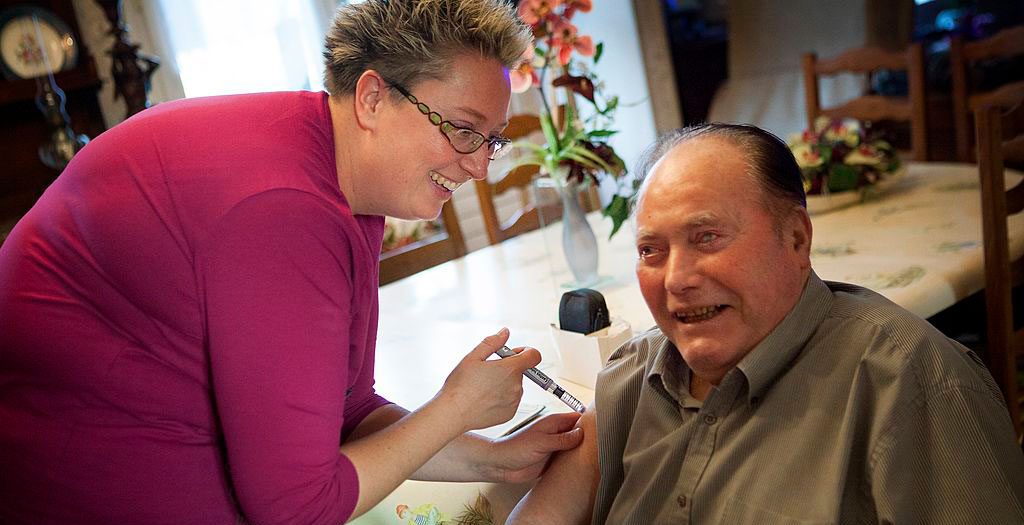Debunking the Misconceptions of Diabetes

The facts are out there, yet the myths persist. It’s important to know how to truly care for yourself if you have this disease.
With a staggering number of misconceptions about diabetes, it’s hard to know the truth. Some people believe that being obese or eating a lot of sugar causes diabetes. Both are false.
Another popular myth is that if you have diabetes, you need to be on a special diet. While there’s some truth to that, it’s not 100-percent accurate. People with diabetes, like the rest of us, benefit by eating whole grains, fruits, and vegetables, and by limiting sugar and fat.
“One of the most important untruths is believing diabetes is not a serious disease,” said Deb Cate-Brown, RN, certified diabetes educator and consultant at Dario, a software company in the medical tech field.
While diabetes causes more deaths a year than breast cancer and AIDS combined, Cate-Brown said, “on the positive side, diabetes can be managed so you can live a healthy life and by taking good care of yourself you can reduce your risk of developing complications associated with diabetes.”
YOU MIGHT ALSO LIKE: Our Diabetes Section
Following are more myths and facts on how to stay healthy if you have diabetes:
Myth: Diabetes doesn’t have any symptoms. Fact: Both types of diabetes — type 1 and type 2 — share some of the same symptoms. “People with both forms of diabetes have excessive thirst, frequent urination, and weight loss,” Cate-Brown said. “Type 2 symptoms are a bit harder to detect. People with type 2 might think that they don’t have diabetes because they confuse symptoms of being fatigued as a symptom of getting older.”
Myth: People with diabetes eventually figure out how to count carbohydrates. Fact: Counting carbs can be incredibly difficult for folks with type 1. “It’s challenging to get it right,” Cate-Brown said. “Often the counts can change. If you eat the exact same food today that you ate yesterday, your glucose count can be off. It’s important to monitor your glucose levels (take readings with a glucose meter) at the same time of day, every day, up to four times a day.”
Myth: All people with diabetes need insulin. Fact: That’s true for type 1, but not for type 2. People with type 2 diabetes can manage their diabetes with diet and exercise. Some may need medication, and some may eventually take insulin.
Myth: If you have diabetes, you can’t eat sugar or carbohydrates. Fact: You can have both, but you need to limit your intake of sugar and understand that carbohydrates are a form of sugar and starch. Some starches, like potatoes, grains, rice, breads, and cereals, can be good for you. It’s also important to know that our bodies break down carbs and convert most of them into sugars. This raises our blood sugar levels.
“Some carbs are healthier than others,” Cate-Brown said. “For example, a slice of whole-grain bread is a better choice than a bag of skittles.”
Fiber, which is a good carbohydrate, fills you up and slows the body’s absorption of sugar. Empty calorie sugary foods, such as soda and cookies, are free of fiber and have no nutritional value.
Myth: Exercise is dangerous for people with diabetes. Fact: “Exercise is essential for people with type 2 diabetes,” said Cate-Brown. “It’s also important for people with type 1.”
Cate-Brown believes this myth got started because we know that exercise lowers and raises blood sugar levels. That’s why it’s important to exercise properly and to talk with your physician or a certified diabetes educator about the types of exercise and how much you should be doing.
Myth: People with diabetes shouldn’t get pregnant. Fact: “This myth is an old one,” she explained. “It comes down to not being able to do your own accurate blood glucose monitoring. In the 1970s we didn’t have home meters. If you’re planning on getting pregnant and you or your partner have diabetes, you will need to talk to your doctor.”
With good monitoring at home, genetic tests, and proper care, it’s possible to have a healthy baby who won’t inherit diabetes.
Myth: People with diabetes are more susceptible to catching a cold. Fact: This rumor may have gotten started because people who have not managed their diabetes can feel tired and run down. The truth is that you are no more likely to get sick if you have diabetes than someone who doesn’t have the disease.
Myth: Diabetes is an old person’s disease. Fact: Type 1 used to be called juvenile diabetes, and diabetes can occur at any age.
You can manage both types of diabetes with good nutrition, some exercise, home monitoring your blood sugar levels, and visiting your doctor to talk about your health.
YOU MIGHT ALSO LIKE: Signs Your Child May Have Type 1 Diabetes
Updated:
February 28, 2020
Reviewed By:
Janet O’Dell, RN